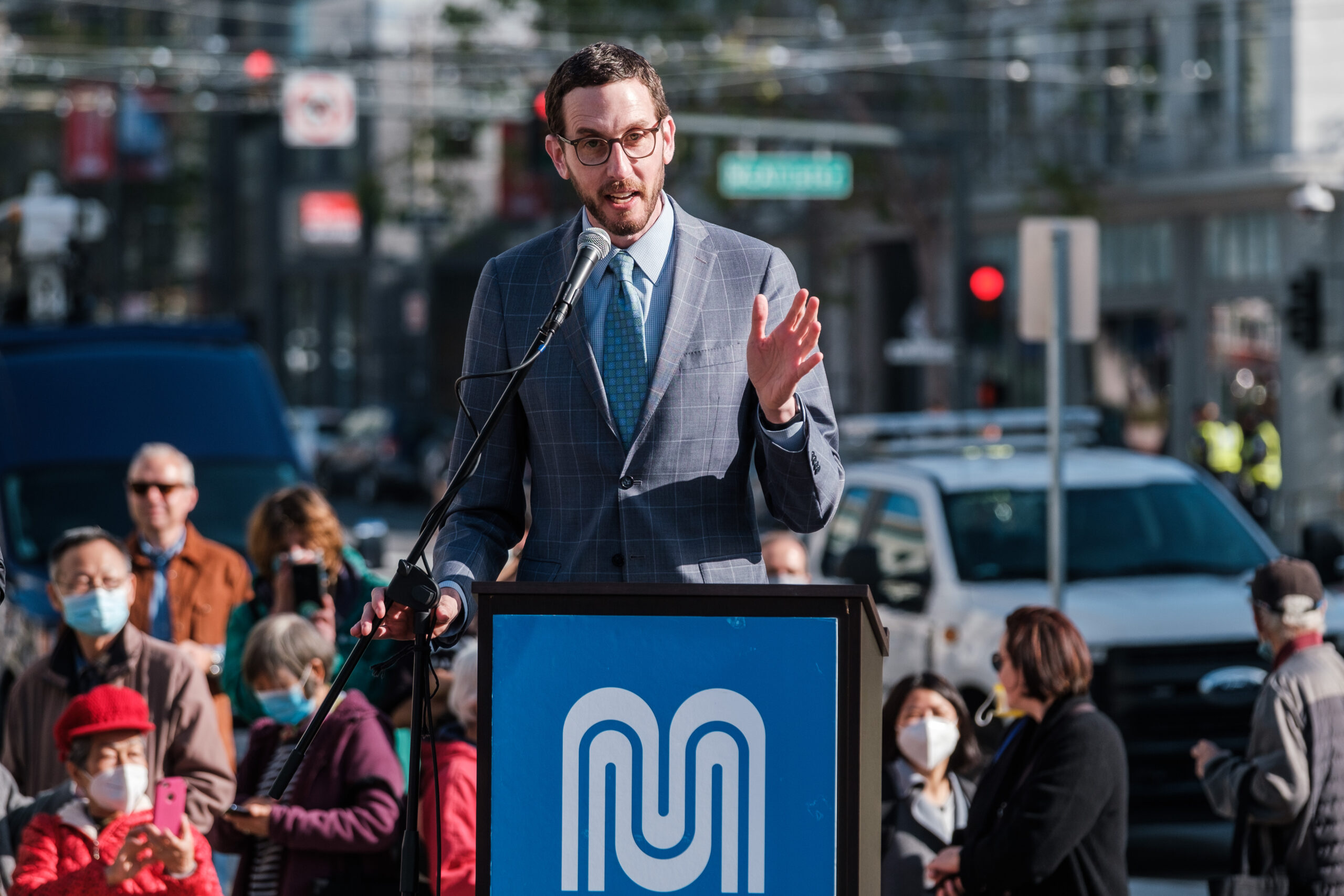San Francisco transit officials delivered grim fiscal news on Tuesday: A looming structural deficit awaits as pandemic emergency funding is exhausted, threatening serious service cuts.
At a seven-hour workshop, San Francisco Municipal Transportation Agency (SFMTA) directors heard briefings from both Controller Ben Rosenfield and the agency’s new Chief Financial Officer Bree Mawhorter.
Mawhorter laid out the stakes bluntly: In the short term, the agency is stretching emergency funding, but at the bottom of that well is a $76 million deficit that could wreak havoc on the system.
For the time being, Covid aid plus lower spending is providing “a bit of a runway to think about the future,” Mawhorter said. But over the longer term, the agency must consider new revenue sources and “very thoughtful about the financial choices we’re making,” she added.
But with local and state governments confronting their own budget shortfalls, more relief from the state is far from certain.
“We’re going to work very hard to get help from the state, but it’s going to be an uphill battle,” said state Sen. Scott Wiener, who formed a coalition to push for more transit funding in the state budget.
“Because the state has a large budget deficit, it’s been an absolute uphill battle. […] This year, we cannot make any assumptions; we cannot assume success,” he said.
SFMTA’s conundrum isn’t unique. Transit agencies across the region and state are facing similar dilemmas—the Bay Area Rapid Transit (BART) regional rail system lost two-thirds of its ridership during the pandemic and now faces a deficit it won’t be able to resolve without going into what it calls a “death spiral” of service.
Current revenues from both transit fares and parking fees are still below pre-Covid levels—and likely won’t fully recover for awhile. Muni ridership is still little over half of what it was in 2019.
The agency also became more dependent on the city’s general fund, which faces a huge deficit of its own. Add in inflation plus other costs, and you have a real fiscal pickle as costs race ahead of revenue.
Rosenfield confirmed the gloomy news at Tuesday’s meeting, showcasing the city’s moribund Downtown as a major factor in the overall economic outlook.
“We’re reckoning with this really significant shift in how working from home and hybrid work plays through our downtown and our tax base. It’ll take time to get from where we are to there,” Rosenfield told the board.
In June 2022, the city placed a $400 million general obligation bond for SFMTA on the ballot, which barely lost with 65% of the vote. It needed a supermajority to pass.
So where do we go from here?
While Wiener looks for answers in Sacramento, he said that a regional funding measure from the Metropolitan Transportation Commission, a regional governing body, may also be in the cards.
“The current plan is to go with a regional housing measure in 2024, and a regional transit measure in 2026. I support both of those measures, but I would love to see the transit measure go next year and not have to wait until 2026 because 2026 is too late,” he said.
